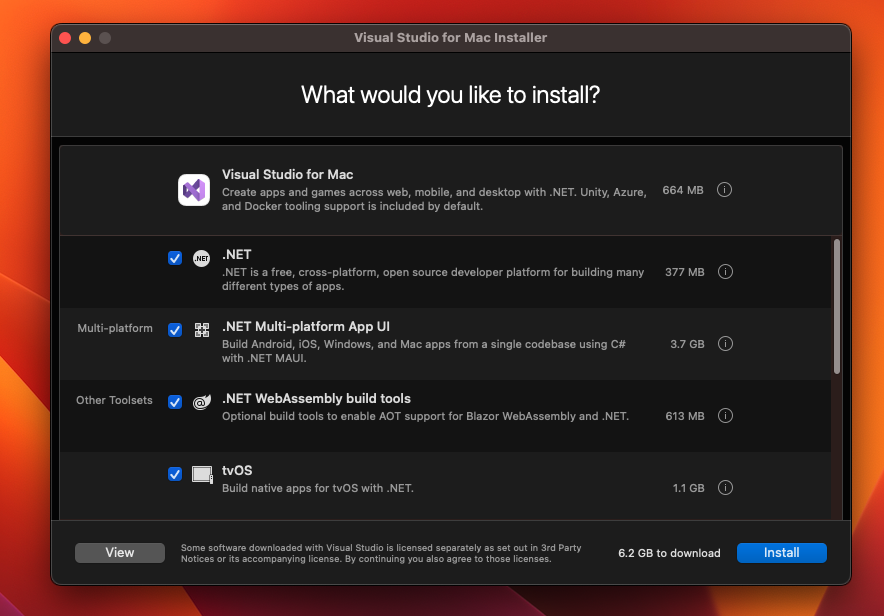Visual Studio vs Visual Studio Code – What's The Difference Between These IDE Code Editors?
 Kolade Chris
Kolade Chris
The first time I heard about “Visual Studio”, I thought it was the same as “Visual Studio Code”. I don’t know why Microsoft decided to confuse everyone with the names of those two development tools. But that’s a story for another day.
“Visual Studio” and “Visual Studio Code” are not the same thing. Visual Studio is an integrated development environment (IDE) and Visual Studio Code is a rich text editor like Sublime Text and Atom.
But the difference between the tools is more than just IDE and text editor.
An IDE is a robust tool for writing, editing, debugging, and running your code. A text editor only lets you write and edit your code. You might have to step out of a text editor to run your code or download plugins to help it do the running for you.
In this article, you'll learn the main differences between Visual Studio and Visual Studio Code. But firstly, we need to know what “Visual Studio” is and what “Visual Studio Code is” before diving into those differences.
What We'll Cover
- What is Visual Studio?
- What is Visual Studio Code?
- What is the Difference between “Visual Studio” and “Visual Studio Code”?
- Which should you Choose between “Visual Studio” and “Visual Studio Code”?
- Conclusion
What is Visual Studio?
Visual Studio was first released in 1997 by Microsoft. It's an integrated development environment (IDE) for developing, editing, and debugging websites, web, and mobile applications as well as cloud services.
Because it's an IDE, programming utilities like a debugger, compiler, intellisence, and more are all bundled into it for you.
Visual Studio comes with built-in support for C# and .NET. It also supports other programming languages like C, C++, Python, F#, web languages (HTML, CSS, JavaScript), and a lot more. Support for Java was removed back in Visual Studio 2017.
Visual Studio runs on Windows and Mac. It has 3 editions – community, professional, and enterprise. The community version is free, while the professional and enterprise are not.
The installation is quite a bit more robust on Windows than Mac. So, on Windows, you might have to download more than 42 GB depending on what you want to do.

But on Mac, as of the time of writing this article, you need around 6.2 GB of disk space.

What is Visual Studio Code?
Visual Studio Code (also called VS Code) is like the mini version of Visual Studio. It is an open-source and lightweight text editor available on Windows, Mac, and Linux. There’s also the web version available at https://vscode.dev/.
VS Code comes with built-in support for JavaScript, TypeScript and Node JS, but you can use it to code in any language you want. All you need to do is download the relevant extensions.
Some of the extensions are made by Microsoft, but a lot of others are third-party extensions.
Unlike Visual Studio, you don’t need much space to download VS Code. You might not need more than 200 MB of disk space to download it.
Since it supports JavaScript, TypeScript, and Node JS by default, you get a debugger and intellisence, too. But to get intellisence, a compiler, and debuggers for other languages, you have to download relevant extensions.
Now you know that Visual Studio is an IDE and Visual Studio Code is a text editor. So let's summarize their main differences next.
What is the Difference between “Visual Studio” and “Visual Studio Code”?
| Basis | Visual Studio | Visual Studio Code |
| Type | Visual Studio is a full-fledged IDE | VS Code is a text editor (AKA Code editor) |
| Platform | Visual Studio runs on Windows and Mac | VS Code runs on Windows, Mac, and Linux |
| Size | Visual Studio is relatively large. You might have to download more than 40 GB on Windows and over 6 GB on Mac | VS Code does not require more than 200 MB on any platform |
| Support | Visual Studio has built in support for C# and .NET, alongside several common languages apart from Java | VS Code supports JavaScript, Typescript, and Node JS out of the box. It also supports other programming languages – as long as there’s an extension(s) for that |
| Pricing | Visual Studio Community Edition is free, but the professional and enterprise editions code $45 and $250 per month respectively. | VS Code is free. Most of the extensions are also free but there are freemium ones |
| Extensions | Visual Studio does not have as many extensions as VS Code | VS Code has numerous professionally and curated extensions for various purposes |
Which should you Choose between “Visual Studio” and “Visual Studio Code”?
There has been a long-running debate about which is better and which to choose between Visual Studio and Visual Studio Code. Well, it depends on what you are doing.
If you’re developing exclusively with a language supported by Visual Studio such as C#, C, C++, Python, and others, Visual Studio or other relevant IDEs are likely the best option for you.
But even if you’re developing in those languages but you require a React, Vue, or Angular frontend, VS code might be the best option for you.
If you’re working in a team, they might provide you with the enterprise version of Visual Studio, or any other IDE that correlates with the language you are working with. For example, PyCharm for Python and IntelliJ Idea for Java.
If you’re using Linux, you have to choose Visual Studio Code or some other IDE apart from Visual Studio. That’s because Visual Studio does not run on Linux.
If you’re the kind of person that likes to customize your editor to your taste, just go for VS Code because it's highly customizable. You also should probably choose VS Code if you are mixing technologies.
Conclusion
This article showed you the differences between Visual Studio and VS Code, and also what they both are separately.
The debate should never be which one is better than the other, but which is best for what you want to do, or what you need. That’s why we looked at some scenarios that might encourage you to choose one over the other.
Thank you for reading.
Subscribe to my newsletter
Read articles from Kolade Chris directly inside your inbox. Subscribe to the newsletter, and don't miss out.
Written by

Kolade Chris
Kolade Chris
I'm a software developer and tech writer focusing on frontend technologies